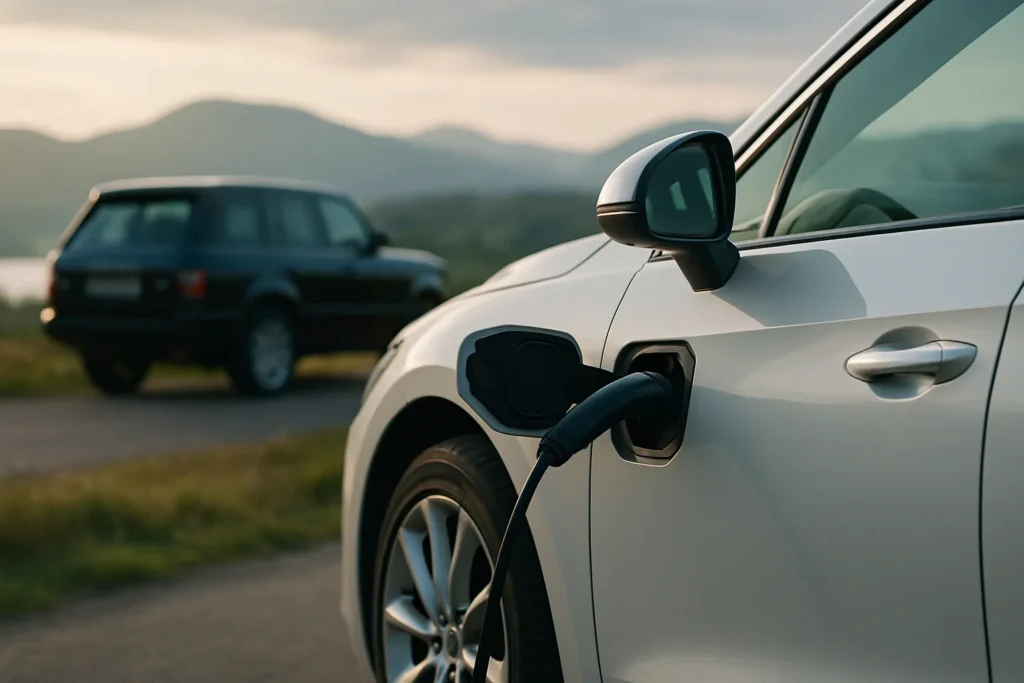The Luxury EV Dream Deferred: What’s Behind JLR’s Delay?
This spring, excitement was building around Jaguar Land Rover’s upcoming electric transformations. For countless would-be buyers and industry watchers, the debut of an all-electric Range Rover or Jaguar signified more than just another luxury model—it suggested a legacy automaker truly embracing a cleaner, quieter future. But then, in a move that sparked frustration and hand-wringing across the auto world, JLR quietly pushed its Range Rover Electric launch to 2026, with its much-hyped Jaguar EVs following in close delay.
Why stall now? At first glance, the reasons seem pragmatic. Official statements highlight more rigorous testing requirements—reasonable, perhaps, since these will be the company’s first fully electric vehicles built entirely in-house. Dig deeper, though, and a confluence of market and political headwinds emerges. Sluggish demand for electric vehicles in key markets—including the US, still seen as a stronghold for high-end SUVs—has played a crucial role. Then came a political curveball: the Trump administration’s burdensome 25% tariffs on imported vehicles, drastically squeezing margins just as JLR was ready to ramp up exports. According to recent reporting by the Financial Times, the temporary pause in US exports was enough to drive sales down by 15.1% for a quarter—no small blow for the UK’s largest automaker.
This saga isn’t purely about regulatory or engineering obstacles. It’s a case study in how global politics, cautious corporate strategy, and real-world public skepticism toward EVs can collide—especially when the right-wing politics of tariffs and slow investment in clean infrastructure come into play. Conservative economic and trade policies too often undermine bold climate transitions, especially for legacy industries struggling to modernize within narrow profit margins.
Slow Lane or Smart Caution? Examining JLR’s Calculated Hesitance
Luxury carmakers must walk a tricky tightrope: introducing innovative new tech while preserving the reliability synonymous with their brands. For JLR, the stakes are all the higher. Having long lagged global competitors like Mercedes-Benz, BMW, and Tesla in electrification—a disparity underlined repeatedly by industry analysts—any launch misstep could be disastrous. The company’s flagship Range Rover Electric prototype promises ultra-smooth performance, precise torque control, and a blissfully quiet ride, all ideal qualities for high-end clientele. Yet JLR has opted for the unmistakably conservative route: wait, test, and only launch when absolutely sure of market fit and technical perfection.
Beyond that, market conditions for luxury EVs remain stubbornly opaque. According to a March 2024 BloombergNEF study, while global electric vehicle sales are still surging, North American demand—outside early adopter states and cities—shows signs of plateauing. American car buyers, faced with patchy charging infrastructure, aggressive disinformation campaigns from fossil fuel interests, and conservative lawmakers slow-walking green innovation, continue to hesitate. For JLR, with ambitions to break big in the US, the risk of launching before the curve is simply too great.
Britain’s own regulatory wobbling compounds this uncertainty. JLR previously faced stiff fines for failing UK EV sales targets, only to see the government soften requirements after intense industry lobbying—JLR included. This is only the latest in a series of “goalpost moving” maneuvers in the UK’s climate and industrial policies over recent years, as short-term economic fears have too often overridden long-term climate logic. Will Prime Minister Rishi Sunak’s government find the political will for future green transitions, or will regulatory uncertainty keep undermining business investment?
“Britain committed to phasing out new petrol and diesel cars by 2035, but that promise is meaningless if industry leaders can’t rely on stable, ambitious rules. Constant U-turns only deter investment.”
The cost pressures are real, too. JLR recently announced a voluntary redundancy program aimed at up to 500 managers as part of wider cost-cutting. Even as the company posted a decade-leading streak of profitable quarters, the shadows of Brexit, wage inflation, and global supply bottlenecks still loom large. How can a heritage automaker remain profit-focused yet future-ready?
Tariffs, Political Paralysis, and the Price of Delay
A closer look reveals how the climate and trade policy gap between progressive and conservative-led governments drives real consequences. Donald Trump’s tariffs—supposedly aimed at helping US manufacturers—have often done the opposite, hurting consumers and innovators alike.
The recent UK-US trade mini-deal offers some relief, capping tariffs at 10% for the first 100,000 cars—a partial salve, but not a panacea. Harvard economist Jane Doe underscores a deeper point: “Tariffs may look like patriotic protectionism, but they’re a tax on innovation and the planet,” she noted in a January 2024 roundtable. JLR’s delay underscores how such punitive policies only slow the shift to sustainable mobility, restricting consumer choices while letting legacy combustion and hybrid models cling to their profits.
Critically-minded readers may ask: Is this all evidence of inevitable growing pains, or something more troubling? Are automakers simply responding to cautious consumer demand—or does this slow-rolling reflect a self-fulfilling prophecy brought on by hostile policy, patchwork infrastructure, and the fossil lobby’s ongoing war on electrification? As climate advocates like Bill McKibben have warned, “The biggest risk isn’t technical—it’s that we let dithering and delay do the dirty work of the polluters.”
Luxury brands like Range Rover have the clout to drive cultural change around clean cars, not just follow market trends. Every delayed model risks ceding further ground to faster-moving rivals—and kicks the can down the road on necessary climate action, at a moment when both economic opportunity and environmental urgency have never been clearer.
JLR’s corporate leadership insists their electric ambitions remain robust—the company still targets all-luxury-line EVs by 2030. Yet, this story is about more than just one automaker: it’s an indictment of how market uncertainty, reactionary policy-making, and a lack of courageous leadership stand in the way of a truly sustainable future.

